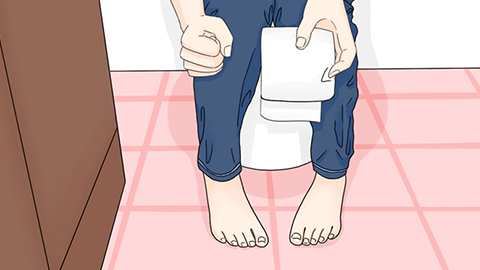What are the symptoms of anal fissure?
When anal fissures occur, common symptoms include severe pain during bowel movements, persistent pain after defecation, blood on the surface of stool, itching around the anus, and difficulty passing stool.具体分析如下:

1. Severe pain during bowel movements: During defecation, dry stools rub against the anal fissure wound, stimulating nerve endings and causing intense pain—often described as burning or cutting in nature. The pain typically subsides temporarily after bowel movement ends but tends to recur frequently.
2. Persistent pain after bowel movements: After defecation, the anal sphincter muscle may spasm due to irritation from the wound, leading to a recurrence of pain. This pain can last from several minutes to hours and, in severe cases, may interfere with daily activities such as walking or sitting. Pain gradually eases only after the sphincter muscle becomes fatigued and relaxes.
3. Blood on the surface of stool: Damaged blood vessels at the site of the fissure may bleed slightly during bowel movements. The blood usually appears bright red, coating the surface of the stool or spotting toilet paper. Bleeding is generally minimal and does not present as heavy dripping or blood mixed within the stool.
4. Itching around the anus: The anal fissure wound may secrete small amounts of fluid, which over time irritates the perianal skin, potentially triggering local inflammation and causing itching. Patients may unconsciously scratch the area, worsening skin damage or leading to infection.
5. Difficulty with bowel movements: Due to fear of severe pain during defecation, patients may deliberately delay going to the bathroom. This prolongs stool retention in the intestines, allowing excessive water absorption, resulting in harder and drier stools. Subsequent bowel movements further aggravate the anal fissure, creating a vicious cycle of "pain → constipation → worsened pain."
Upon experiencing symptoms suggestive of an anal fissure, it is important to adjust diet promptly by consuming more fiber-rich foods to maintain soft and regular bowel movements. If symptoms persist for more than one week without improvement, timely medical evaluation and treatment are recommended.




